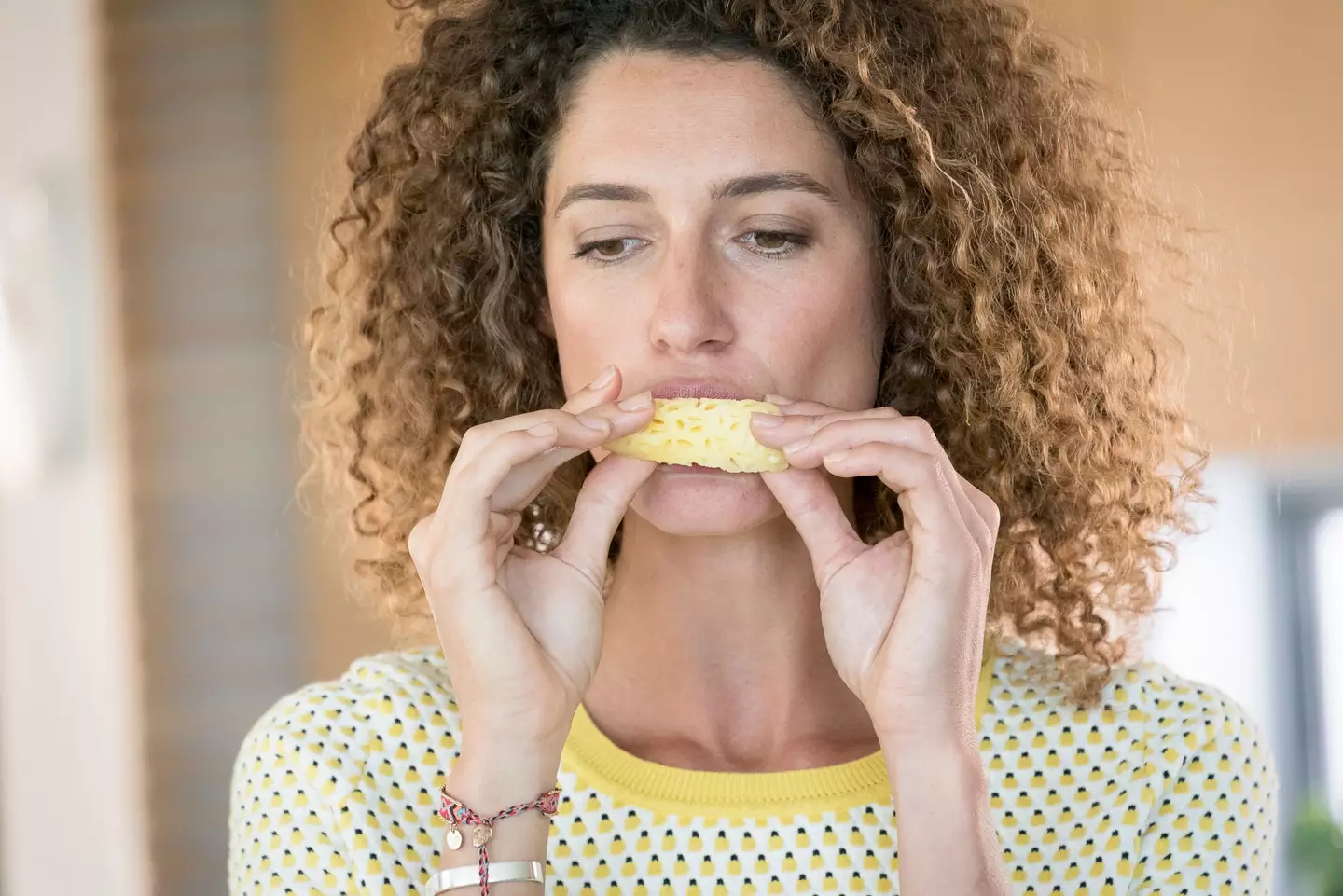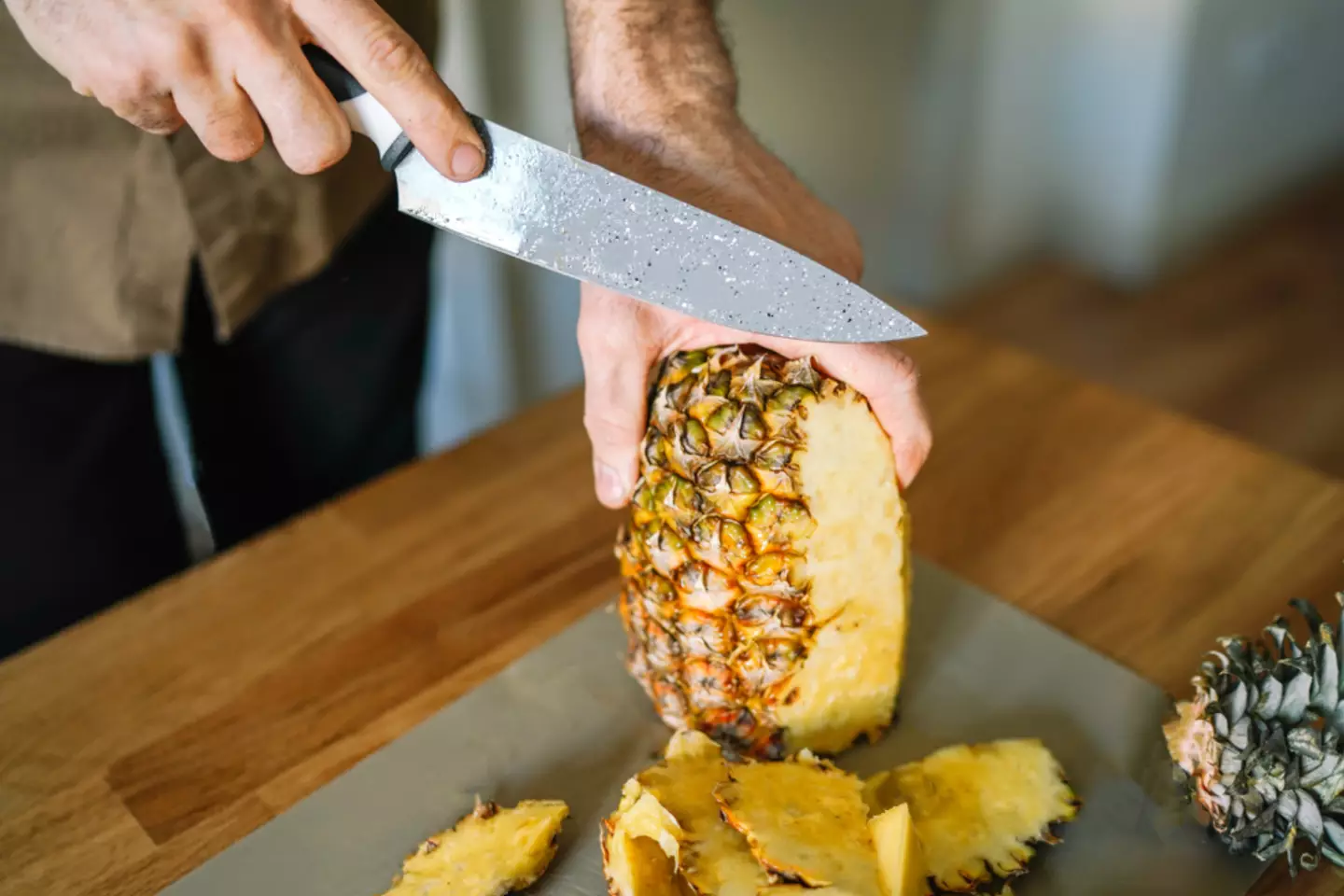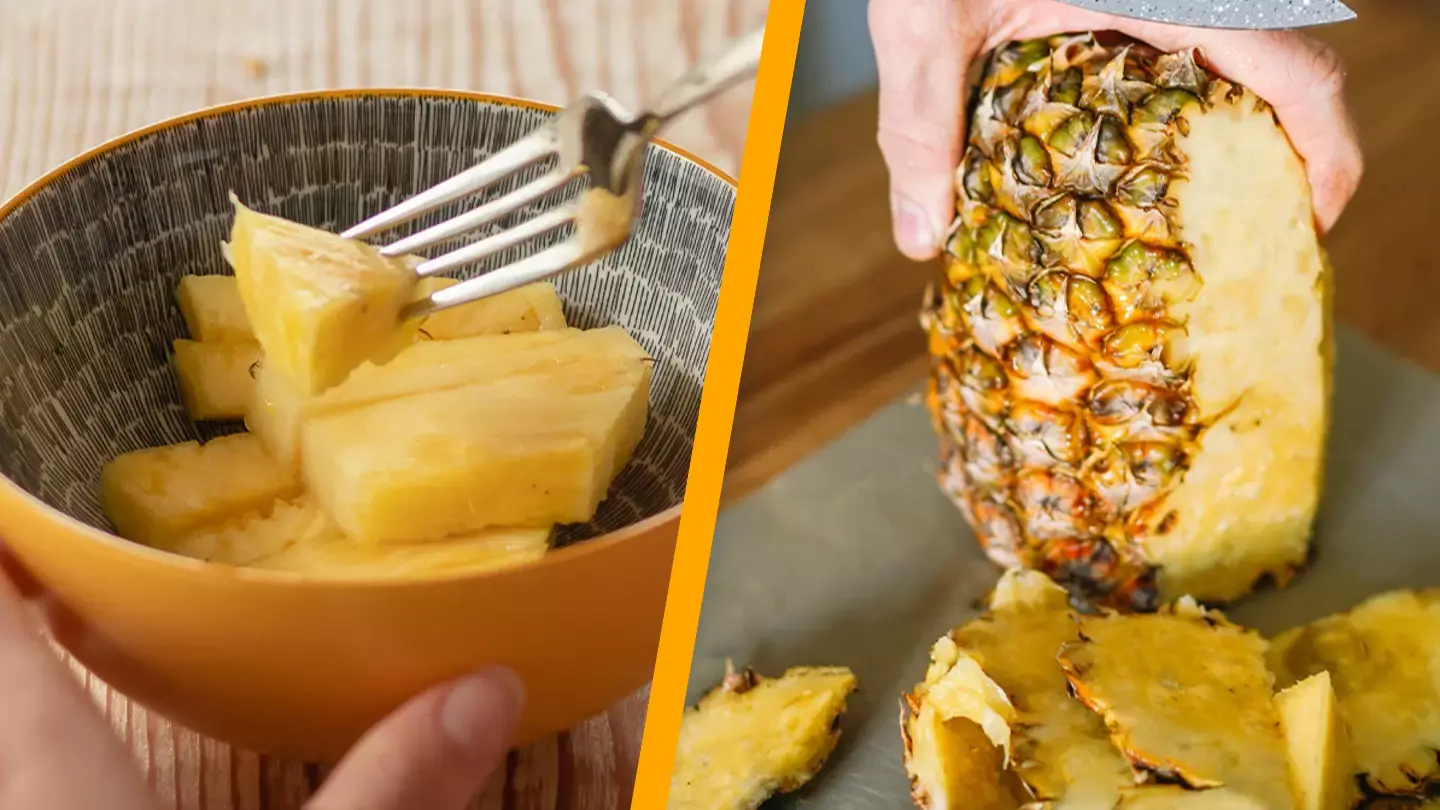If you experience a peculiar tingling sensation after consuming pineapple, you’re likely not allergic, and the fruit isn’t spoiled—there’s a scientific explanation for it.
Instead of creating a ‘fireproof’ shield using pineapple skin like one inventive individual, you might have noticed a tingling, numbing, or even slightly painful sensation after eating the yellow fruit. Several reasons could explain this phenomenon.

Last year, a TikToker known as SF Microscopy shared a video on their page to explain why many people experience a tingling sensation after eating pineapple.
In the video, they examine a pineapple sample under a microscope and explain: “It’s cause we are getting stabbed by thousands of tiny needles called raphides! These crystals of calcium oxalate poke holes in your cell membranes, causing irritation!”
However, the video concludes: “Won’t stop me from eating this delicious fruit.”
Users quickly responded to the revelation.
@sf_microscopy One of my favorite fruits is pineapple, but every time I eat them, my mouth tingles. I read that the fruit contains raphides! Kiwis, grapes, taro, and yams also have large amounts of these crystals. These needles serve as a defensive function against insect herbivors to deter them from eating the plant’s fruits and protect the seeds. The needles work with other chemcial substances, like bromelain in the pineapple, to amplify the effects. #microscope #microbiology #underthemicroscope #microscopy #microcosmos #nature #pineapple #crystals #fyp #fypage #fypシ
One TikTok user commented: “This whole time I thought it was because I was mildly allergic.”
“So basically while I’m eating my pineapple, my pineapple is eating me…” another added.
“I don’t tingle after eating pineapple. Am I… better than everyone?” a third user asked.
A fourth noted: “It always feel so raw afterwards this makes so much sense.”
A fifth concluded: “Never eating pineapple again bro.”
While the explanations on TikTok might be a bit exaggerated, there is truth to them. The ‘needles’ and ‘stabbing’ are somewhat dramatic descriptions.

The raphides in pineapples are so tiny they can only be seen under specialized microscopes and aren’t large or strong enough to cause serious damage to your mouth.
However, when combined with the acidic juice of the pineapple, the tingling sensation is more pronounced. The microscopic abrasions from the raphides allow the acidic juice to have a greater effect.
According to Livestrong.com, a group of enzymes called bromelain in the fruit can also cause a ‘numbing’ sensation.
They explain: “Bromelain works by removing the molecules on the surface of cells, essentially digesting them. Although this makes bromelain useful for tenderizing meat, it can also cause pineapple to leave your mouth feeling raw and numb. Bromelain begins to break down the proteins on the surface of your lips, tongue and cheeks when it makes contact with these areas.”
The McGill Office for Science and Society adds: “Bromelain has mucolytic effects, hence it can break down some of the mucous in our saliva that protects the lining of the oral cavity. With this weakened defense line, the acidic pH of pineapple juice can cause an unpleasant prickle.”
Ultimately, McGill concludes there ‘is no single’ or ‘clear explanation’ as to why pineapple causes such a tingling sensation for many people. If you dislike the sensation, canned pineapples are a good alternative, as the heat treatment they undergo destroys the problematic enzymes.
Despite this, the benefits of eating pineapple are well-known, so the tingling might be worth it in the end. However, for those thinking of the more adult benefits—sorry to disappoint, but that one isn’t actually true.

